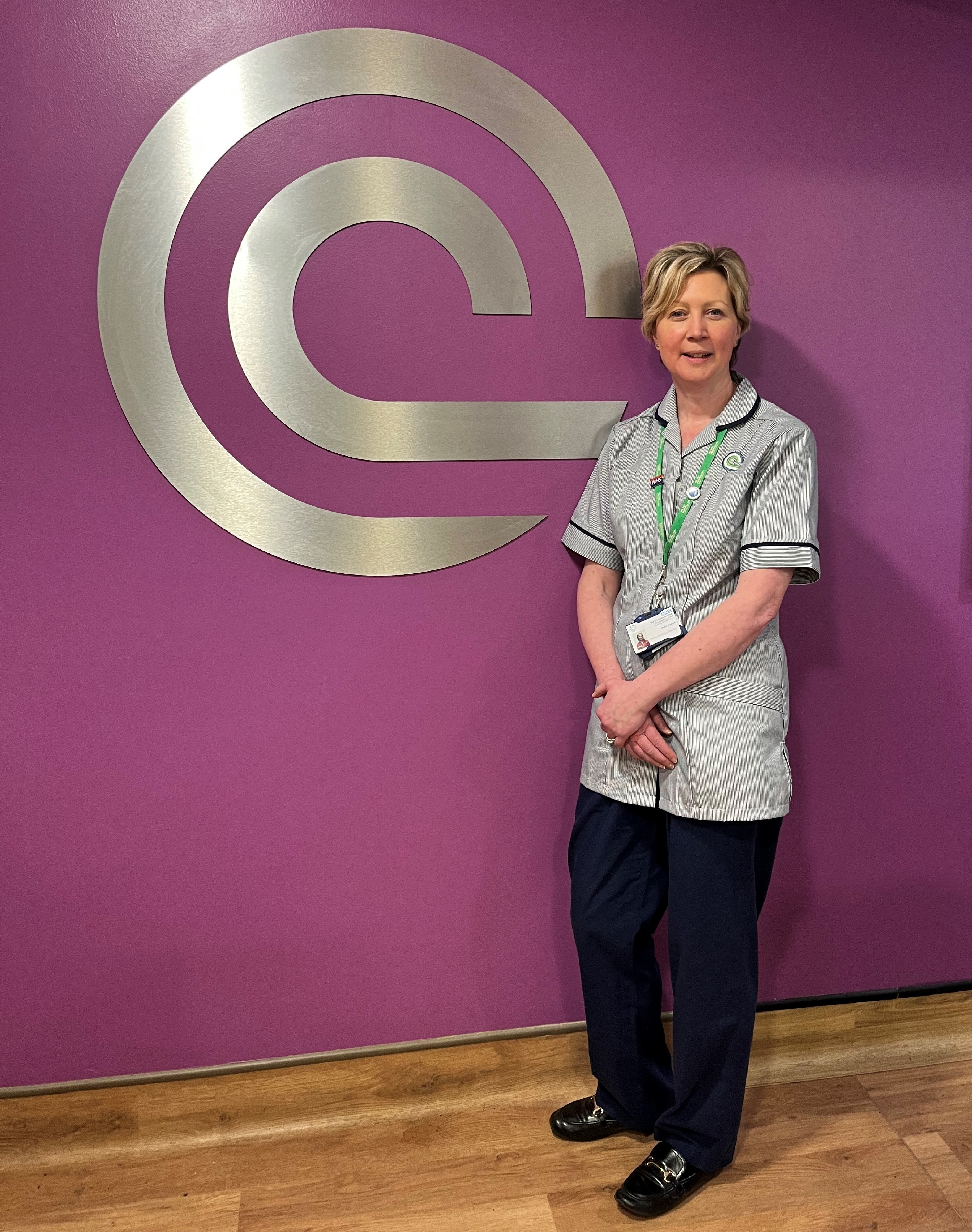Sarah Cubbin, Prostate Cancer Clinical Nurse Specialist

"I fell into oncology nursing after I moved from Leeds, where I did my nurse training, and got a job at The Clatterbridge Cancer Centre. I’m embarrassed to admit I didn't even know what radiotherapy was at the time! But thought it would be an interesting avenue to explore, and as you can see I haven’t left.
I’ve worked in numerous roles throughout my 24 years as a Clatterbridge nurse working my way up from staff nurse when I joined the Trust in 1999, to lead nurse and now prostate cancer clinical nurse specialist (CNS).
The role of the CNS is about being the patient’s advocate. Ensuring that patients and carers have the correct information and advice about their diagnosis and treatment. Translating the medical information into understandable pieces to help patients make the right decision for their care. It’s the wrap around support. Predicting and anticipating issues that may arise, and ensuring strategies are in place to support them, whether that be through referrals to community support, psychological medicine or benefits advice. It’s taking a holistic approach to care and looking not just at the cancer, but what else is going on in their lives.
Being a CNS is a complex role and no one truly understands the role until they step into the shoes of a CNS. It’s not black and white. CNSs are highly trained and highly educated individuals who are experts within their chosen tumour group. But the work is unpredictable. You can come in to work with a plan in your head of what your day will look like, and you take a call or an email and it can take you all day to resolve a problem. However, it’s truly rewarding knowing on that day at that particular time you made a difference, however big or small that might be.
People ask why I work in oncology and it’s not a simple answer as it’s a combination of things, but most importantly it’s the people you meet and work alongside. I have met the most inspirational people, both patients and colleagues, and you take a little bit of all the positive attributes you see and add that to your practice to be the best practitioner you can be.
There has always been a special atmosphere at CCC which I have never experienced with any other hospital. I used to think it was because we were a smaller Trust, but that is no longer the case now we have multiple sites. Staff always go above and beyond for our patients and that’s special to see and be part of.
My teams and managers have also always been advocates for career and learning progression. They have supported me to do my degree (BSC in Cancer and Palliative Care at Thames Valley University - distance learning programme through Marie Curie Hospice in 2007) and Masters (MSC in Advanced Nursing Practice at Liverpool John Moores University in 2011), along with numerous study days and attending national and international conferences. I have been very fortunate to attend conferences in Dublin, Denmark, Chicago and Toronto, and presented the Trust’s telehealth pilot study at the World Lung Conference in Toronto.
I’ve also been incredibly supported when I was diagnosed with Parkinson’s disease two years ago. I initially thought that was the end of my career. I was in a dual role as lead nurse and lung cancer CNS and I had to look at my work life balance. I considered leaving the profession altogether but nursing was what I knew, what I have trained for my whole adult life, and what I’m passionate about.
A colleague then told me about a prostate CNS vacancy, working with the patient direct open access team (PDOA) which provides a service monitoring patient results remotely. I got the job and will have been with the team for 12 months in April 2024!
It’s been harder than I anticipated switching into a new job, but honest conversations and communication have been key with both my managers and colleagues. When I started my new role, a colleague had gone to the trouble to research Parkinson’s disease to help her get a better understanding of the condition. She understands that I need to take medication at certain times, or I need to stop for lunch and have a walk as this helps me work more effectively in the afternoon.
There are policies in place to support staff with long term health conditions to enable you to keep working if you are able to, with adjustments and/or support from HR and occupational health. Don`t wait ask for help and support as it will help you to be happier in the workplace. I am part of the disability and long term health conditions group which are working to ensure the workplace is suitable for everyone working in it.
My working week has been adapted to ensure I can work within my capabilities whilst still being part of a team and doing the job effectively, and the support shown by my colleagues and managers has made all the difference!"
